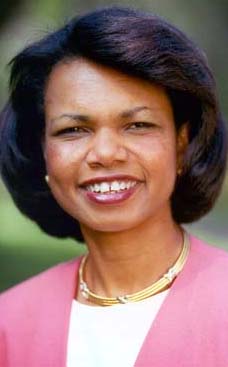2006.03.10: March 10, 2006: Headlines: COS - Zambia: Small Business: Imports: Service: Marriage: Oxford Press: Keith and Jenny Gelber met as Peace Corps Volunteers in Zambia, now helping African farmers
Peace Corps Online:
Directory:
Zambia:
Peace Corps Zambia :
The Peace Corps in Zambia:
2006.03.10: March 10, 2006: Headlines: COS - Zambia: Small Business: Imports: Service: Marriage: Oxford Press: Keith and Jenny Gelber met as Peace Corps Volunteers in Zambia, now helping African farmers
Keith and Jenny Gelber met as Peace Corps Volunteers in Zambia, now helping African farmers

After Keith’s stint in the corps was over, but before he left Zambia, he started a business with a Zambian man buying peanuts and sunflower seeds, two of the nation’s main cash crops. He said he was tired of watching middlemen buying from rural farmers at one price, then selling the seeds and nuts in the city to oil companies for five to 10 times that.
Keith and Jenny Gelber met as Peace Corps Volunteers in Zambia, now helping African farmers
Oxford Township couple has sweet business
Couple met in Peace Corps, now helping African farmers
Friday, March 10, 2006
A chance meeting of two Oxford Twp. residents in a burger joint in an African capital 8,120 miles away led to a marriage and a unique honey business.
Keith and Jenny Gelber are slated to import 40 tons of organic tree honey this year from Zambia, a country in southern Africa.
The honey will be bottled here in the United States under the Gelbers’ Zambezi Honey label and will be available to consumers in May.
For the couple, though, there’s more to the business venture than getting into a niche food market. It’s also about improving the quality of life for people they lived and worked with for years in the Peace Corps.
“It doesn’t take a lot to make a huge difference in someone’s life when it comes to economic empowerment and income generation,” Keith said. “There were families of eight in my village, and I’ve done the math, making less than 10 cents per day. And even then, they would only have money a few months out of the year.”
The couple joined the corps independently in the late 1990s. He was working in water and sanitation, building pit latrines in one part of the country, and she was working in another, helping farmers build ponds and raise fish, when they ran into each other in the country’s capital, Lusaka.
“Love, I guess, can blossom in strange places, even some sub-Saharan capital,” Keith said. “We met as Jenny was actually finishing. I convinced her not to go back to the states. I said, ‘We just met, why don’t you stay in Africa a little longer?’”
After Keith’s stint in the corps was over, but before he left Zambia, he started a business with a Zambian man buying peanuts and sunflower seeds, two of the nation’s main cash crops. He said he was tired of watching middlemen buying from rural farmers at one price, then selling the seeds and nuts in the city to oil companies for five to 10 times that.
So he started buying them himself from the farmers at much higher prices. By the end of the first year, he had purchased 500 tons of sunflower seed.
“We ran it sort of as a nonprofit,” he said. “We walked away at the end not making any money, but not losing any money, but we almost tripled how much farmers were getting for their sunflowers and peanuts.”
The couple eventually returned to the United States and got married. But, as Jenny said, “We dreamed of going back. Zambia was under our skin.”
Jenny said the couple returned for a year in 2004 to try to start a small farm to teach conservation and subsistence farming, but the venture didn’t work out. After a year, they decided to move to Oxford to take over a family farm.
Before they left, though, they met a man who was teaching the farmers to cultivate honey in the forest. The organic-certified, 5,000-farmer operation was buying honey for about 40 percent higher than the going rate, in the mode of Keith’s old sunflower seed venture.
Once the honey farmers are trained, Jenny said, their incomes increase by about 100 percent. Because Zambezi Honey is cultivated in tree hives, it also gives the Zambians a reason to preserve their forests.
When the farmers start seeing the increased income, usually going from about $3 to $7 per month to about $14 per month, the impacts can be dramatic.
“When farmers have money, they spend it on two things — to send their children to school and to go to the clinic,” she said. “Malaria and HIV-AIDS is endemic. Tuberculosis is endemic.”
From there, Keith said, people will buy metal sheets to build leak-proof roofs, radios to tune into weather forecasts and bicycles to cross the distance to the nearest town, which can be 60 miles or more away.
The remoteness, though, does have its benefits for the honey.
In order to be certified organic, the bees aren’t treated with antibiotics, it’s not processed with chemicals and the bees aren’t feeding off sprayed or genetically modified crops, which makes truly organic honey difficult to produce in the United States.
In addition, he said the honey is certified kosher and is bottled in New York.
The Gelbers are slated to roll out Zambezi Honey at the All Things Organic trade show in Chicago in May. They plan to start selling the honey in health and organic food stores with direct sales on their Web site. The honey will also be available to customers looking for larger quantities for bakeries and other food manufacturers.
Locally the honey will be available in Oxford at Oxford Natural Foods, Main Street Gourmet and Sustainable Style.
Contact Chris Dumond at (513) 820-2025, or e-mail him at cdumond@coxohio.com.
When this story was posted in March 2006, this was on the front page of PCOL:





Peace Corps Online The Independent News Forum serving Returned Peace Corps Volunteers
 | March 1, 1961: Keeping Kennedy's Promise
On March 1, 1961, President John F. Kennedy issues Executive Order #10924, establishing the Peace Corps as a new agency: "Life in the Peace Corps will not be easy. There will be no salary and allowances will be at a level sufficient only to maintain health and meet basic needs. Men and women will be expected to work and live alongside the nationals of the country in which they are stationed--doing the same work, eating the same food, talking the same language. But if the life will not be easy, it will be rich and satisfying. For every young American who participates in the Peace Corps--who works in a foreign land--will know that he or she is sharing in the great common task of bringing to man that decent way of life which is the foundation of freedom and a condition of peace. " |
 | The Peace Corps Library
The Peace Corps Library is now available online with over 40,000 index entries in 500 categories. Looking for a Returned Volunteer? Check our RPCV Directory. New: Sign up to receive PCOL Magazine, our free Monthly Magazine by email. Like to keep up with Peace Corps news as it happens? Sign up to recieve a daily summary of Peace Corps stories from around the world. |
 | Paid Vacations in the Third World?
Retired diplomat Peter Rice has written a letter to the Wall Street Journal stating that Peace Corps "is really just a U.S. government program for paid vacations in the Third World." Director Vasquez has responded that "the small stipend volunteers receive during their two years of service is more than returned in the understanding fostered in communities throughout the world and here at home." What do RPCVs think? |
 | RPCV admits to abuse while in Peace Corps
Timothy Ronald Obert has pleaded guilty to sexually abusing a minor in Costa Rica while serving there as a Peace Corps volunteer. "The Peace Corps has a zero tolerance policy for misconduct that violates the law or standards of conduct established by the Peace Corps," said Peace Corps Director Gaddi H. Vasquez. Could inadequate screening have been partly to blame? Mr. Obert's resume, which he had submitted to the Peace Corps in support of his application to become a Peace Corps Volunteer, showed that he had repeatedly sought and obtained positions working with underprivileged children. Read what RPCVs have to say about this case. |
 | Why blurring the lines puts PCVs in danger
When the National Call to Service legislation was amended to include Peace Corps in December of 2002, this country had not yet invaded Iraq and was not in prolonged military engagement in the Middle East, as it is now. Read the story of how one volunteer spent three years in captivity from 1976 to 1980 as the hostage of a insurrection group in Colombia in Joanne Marie Roll's op-ed on why this legislation may put soldier/PCVs in the same kind of danger. Latest: Read the ongoing dialog on the subject. |
 | PC establishes awards for top Volunteers
Gaddi H. Vasquez has established the Kennedy Service Awards to honor the hard work and service of two current Peace Corps Volunteers, two returned Peace Corps Volunteers, and two Peace Corps staff members. The award to currently serving volunteers will be based on a demonstration of impact, sustainability, creativity, and catalytic effect. Submit your nominations by December 9. |
 | Friends of the Peace Corps 170,000 strong
170,000 is a very special number for the RPCV community - it's the number of Volunteers who have served in the Peace Corps since 1961. It's also a number that is very special to us because March is the first month since our founding in January, 2001 that our readership has exceeded 170,000. And while we know that not everyone who comes to this site is an RPCV, they are all "Friends of the Peace Corps." Thanks everybody for making PCOL your source of news for the Returned Volunteer community. |
Read the stories and leave your comments.

Some postings on Peace Corps Online are provided to the individual members of this group without permission of the copyright owner for the non-profit purposes of criticism, comment, education, scholarship, and research under the "Fair Use" provisions of U.S. Government copyright laws and they may not be distributed further without permission of the copyright owner. Peace Corps Online does not vouch for the accuracy of the content of the postings, which is the sole responsibility of the copyright holder.
Story Source: Oxford Press
This story has been posted in the following forums: : Headlines; COS - Zambia; Small Business; Imports; Service; Marriage
PCOL32052
89















